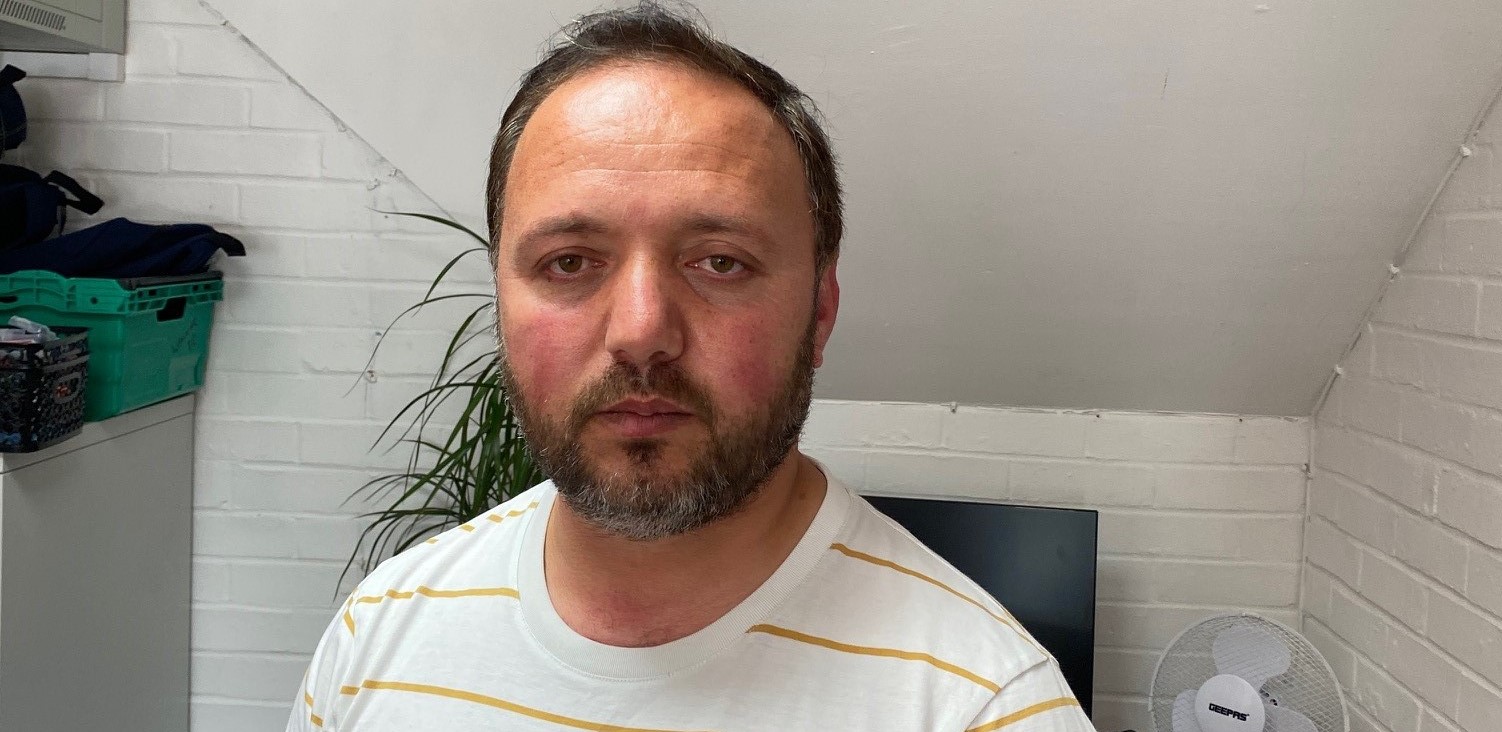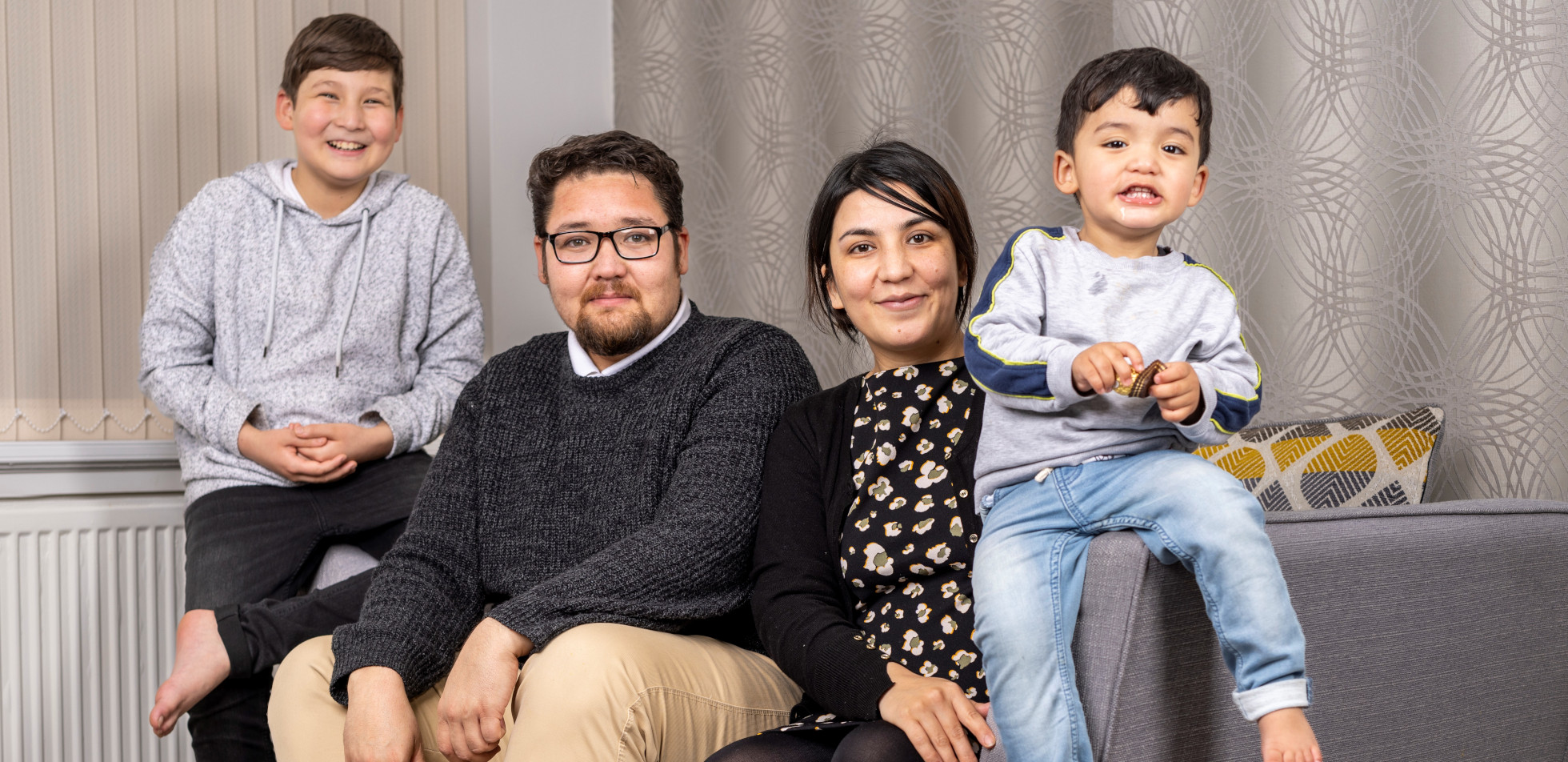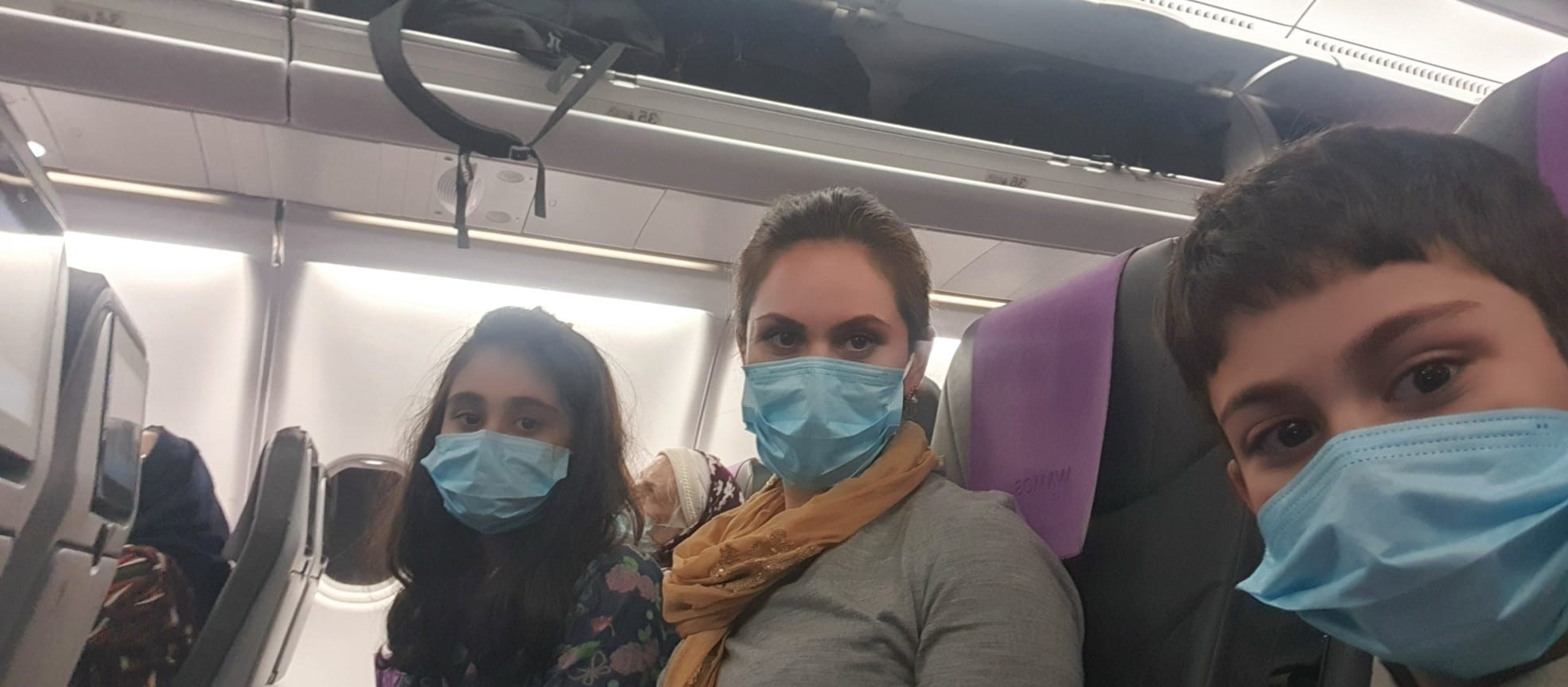Two years ago, when Kabul fell to the Taliban, the British Government announced “Operation Warm Welcome”. Then-Prime Minister Boris Johnson promised that “we will never forget the brave sacrifice made by Afghans who chose to work with us”.
Did Afghan refugees receive a warm welcome in the UK? Abdul, Amina* (her name has been changed to protect her identity), Hossain and Zahra worked in jobs which put their lives at direct risk once the Taliban came to power. They speak about some of the ways in which instead of a warm welcome, many Afghans who worked with the British are being left out in the cold.
 Abdul in the UK
Abdul in the UK
Abdul Mateen Masroor
Abdul worked as an interpreter for the British Army. He escaped in 2021 and his family was able to join him in the UK. He is now studying English, training to be an electrician and working in retail. His answer to the question is “yes and no.”
You can’t have a normal life in a hotel, no one wants to stay there by choice—they just can’t find anywhere else.
“In some ways, yes, it was a very warm welcome. For my family, although we suffered, it was good in the end to be reunited. I’m quite happy with that.
“But for those who are still trapped in Afghanistan, it is not a warm welcome. The British Army did not fulfil its promises. They have the records and contacts that they need, and they could accelerate immigration programmes to evacuate Afghans who are in a bad situation.”
And for those already here… many of my friends are in hotels and different areas out of London, and they now face eviction and are not able to find permanent housing. You can’t have a normal life in a hotel, no one wants to stay there by choice—they just can’t find anywhere else. The Government shouldn’t force the families to leave. They were supporters in Afghanistan, they helped them. That’s why they are here. The Government should find a solution to this problem.”
Amina*
Amina worked as a female coordinator with the British Forces in Afghanistan from 2004 to 2006. She had to flee to the UK due to threats from the Taliban, however she returned to Afghanistan to care for elderly relatives. She then had to get on an evacuation flight from Kabul with other women and children from her family when the Taliban took over in 2021.
She does not feel that they have received a warm welcome. Amina has experienced racism when she leaves the hotel, and says that life in the hotel is very restricted—for example, they are not allowed to take and food up to their rooms, even a piece of fruit. Now she has been told they must leave the hotel, with nowhere else to go.
We have to leave this hotel. We don’t have any accommodation. So on 16th August, when we wake up, we have nowhere to go.
“For two years they didn’t offer us anything like housing. I never got anything offered in two years.”
“We have to leave this hotel. We don’t have any accommodation. So on 16th August, when we wake up, we have nowhere to go.”
“The Government promised us that they will accommodate us. We sacrificed a lot for them in our country. We sacrificed everything because of them.”
“Please welcome us. We have a problem in our country, and we deserve a good life as well. We are human like you.”
 Hossain Saeedi and his family
Hossain Saeedi and his family
Hossain Saeedi
Hossain worked at the British Embassy in Kabul, and was evacuated to the UK in 2021. He’s now working for the Red Cross. He has also been helping the Refugee Council by supporting and advising Afghan families to help them find accommodation.
Hossain believes that Afghans coming to the UK did have a warm welcome. But he is concerned about the housing problems and the new laws which target asylum seekers and refugees.
“Definitely some families will struggle to find their own accommodation. That’s because of the bigger issue all over the country, we have a shortage of housing. Even for local people it’s not easy to get a house, with a great financial history, a sustainable job and good amount of savings—so let alone people who live in hotels, don’t have much savings or a stable job…”

Zahra Shaheer
Zahra was a television presenter and journalist in Afghanistan, and was evacuated to the UK in 2021 with her two children. She speaks out in the media to raise awareness of the situation for Afghan women and girls. She is grateful to the British government for their help, but says they haven’t fulfilled all of their promises.
There is no safe route for family reunion, so people are left thinking about saving their families all the time.
“Promising a better life and resettlement here, but now forcing people to leave hotels in a very short period of time makes no sense. It is a horrible decision, in my opinion.”
“When I was in a hotel, once or twice a week, there were people coming to speak about housing, but there was no house available. When we asked for a house, they would say there was a shortage of houses, and some councils don’t offer housing for new Afghan evacuees. Some landlords don’t want to rent their houses to refugees.”
“Families need suitable houses, and being forced out with no choice will not help them to resettle well.”
“There is no safe route for family reunion, so people are left thinking about saving their families all the time. Living with trauma and wondering how to save their families while resettling in a new place is really hard.”
“People who come via boats or take unsafe routes are forced to leave their homes because their lives are at risk—how can we watch people in danger without offering help?”
Hostile policies are damaging for all refugees, adding to their trauma and preventing them from rebuilding their lives. When refugees are supported and welcomed, they use their skills, talents and energies to enrich our country.
As Hossain says: “If I would like to address the UK public, it would be to say that your generosity, your welcome, your support and your smiles are going to be paid off in a few years, when these families are resettled in the UK and contributing back to the host community.”
For more about these issues, you can read our report “What Happened to the Warm Welcome” here, and donate to support our work with refugees here. ■

